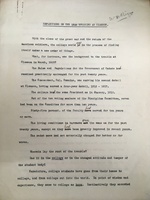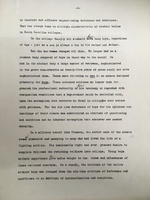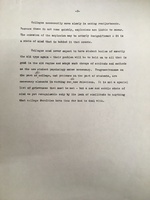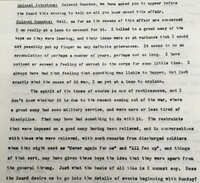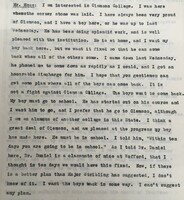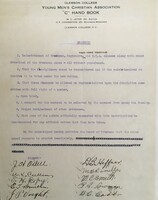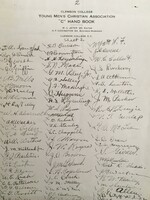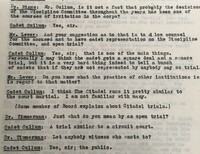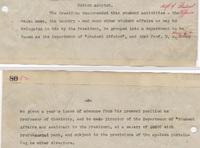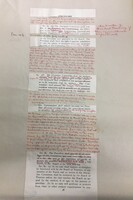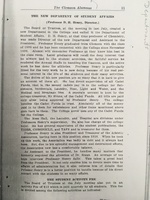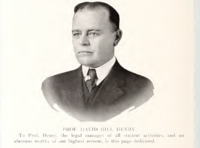From Protest to Promise
On March 13 and 14, the Board of Trustees held an emergency meeting and conducted an investigation into the events surrounding the walkout. The investigation featured exhaustive testimony from numerous perspectives.President Riggs and Commandant Cummins each gave their account of events. Both men held the student walkout to be largely the result of class comradery and peer pressure. President Riggs, however, also surmised that the Student Army Training Corps had "created a distaste of military discipline" and that conditions in the mess hall had "not been as good as heretofore." President Riggs assumed disilluisioned World War I veterans amongst the student body exacerbated dissatisfaction among the younger students.
A representative of the student body, Cadet Cullum, provided the perspective of the cadets. He presented the formal petione of the freshman and sophomore classes. This petition featured dozens of signatures and specific demands inclduing reinstatement of all walkout participants whitout punishment, improvement of mess hall conditions, and reforms to the Discipline Committee. Regarding this last demand, Cadet Callum advocated the instition of public trials for students facing disciplinary action.
After its investigation, the Board of Trustees sided unanimously with the Riggs and Commandant testimonies, declaring that the student walkout was an act of immaturity in which many of its participants had been persuaded by peer pressure. They stated that students could return to campus and request reinstatement by March 21. It appears nearly all the students who walked out returned to campus.
Depsite supporting the administration, the Board of Trustees released subsequent reports in April and July introducing several significant changes. First, the Board of Trustees instituted changes to the Disciplinary Committee. Future trials would be made public to ensure more transparency. Second, the Board announced the creation of a Department of Student Affairs. Under the directorship of Professor D. H. Henry, a widely popular teacher, the Department of Student Affairs would oversee conditions in the mess hall and barracks, promote student activities, and provide an outlet for student grievance.
